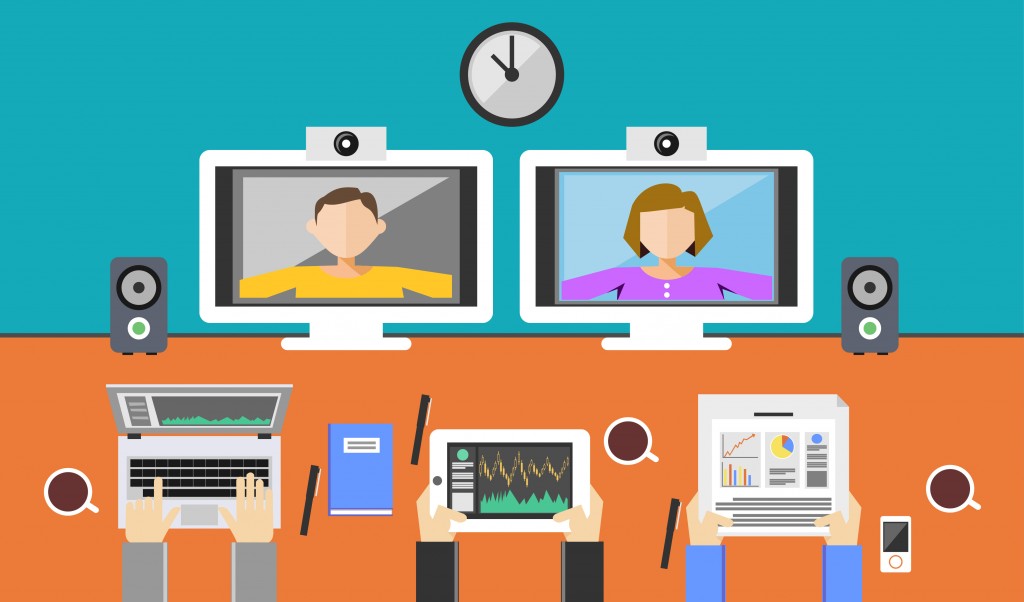
Welcome to part 4 of my Paperless Classroom series of blog posts. In part 1 I discussed general paperless technology; in part 2 I talked about my own classroom progression through the available tools; and in part 3 I discussed my own tool I created and used in the classroom. In part 4, I want to discuss the next version of my tool in the hope it can become an open source project that others can make use of. If you have not read part 1 to 3, then you may want to have a quick skim through. However, if not, you should still be able to understand what is going on. Here I talk about how I migrated my tool from the HTML, CSS, JavaScript and Google Apps Script creation of the Wurkbuk Management console to the Joomla Wurkbuk website.
- Details
- Read Time: 11 mins
Read more: The Paperless Classroom: Part 4 - Wurkbuk - Joomla Version

Welcome to part 3 of my going paperless journey. If you haven't already, you may want to check out part 1 and part 2 to get some context, but you don't have to. In summary, part one discussed the details of general paperless classrooms and answered some basic questions. Part two delved into my own experience and how I ended up developing my own tools. This part concentrates on how I developed and used my own tools within my classrooms and departments.
I was able to develop my program using JavaScript, Google App Scripts, HTML, and CSS. There is a basic script editor hidden within Google Drive which was used as my IDE, which wasn't perfect but was manageable. I was able to run the scripts and generate a good enough output to use, and when it was complete, I was able to run it as a web app. Below is version 49 of the working prototype, which was largely bug free.
- Details
- Read Time: 16 mins

Welcome to part 2 of my Paperless Classroom series of blog posts. In part 1, I explained the what, whys and hows of going paperless, as well as what could go wrong and some tools that could be used. I also refered to my previous posts on tools that I had used in the past, and using Google Sites as a medium of instruction. In this post, I want to concentrate on my progression from paper based to paperless classrooms. What is important to mention is that there are a million and one different ways to do it, and all are dependent on the students, the school, the availability of equipment and technology as well as what software is available given the funds at your disposal. In my experience I tried to make sure that all software that was used was free. Below, I'll talk about how I started in the mid 2000s, and what led me to end up developing my own tools.
- Details
- Read Time: 9 mins

As I add to the multiple blog posts around the internet on the paperless classroom, I consider the purpose of writing this at all. Everything has been said already right? Well, not quite...
As every moment goes by, someone creates a new tool, a new technology, a new method to make going paperless that much easier, smoother, less prone to disruption and overall just a little bit better. The first blog posts I started reading about going paperless were about 10 years ago. A lot has changed since then, and that change needs to be documented. So here is my 2 penneth. In summary, I try and address these questions
-
What is going paperless?
-
Why go paperless?
-
Why have some not gone paperless?
-
What can go wrong?
-
How is it easier than before?
-
What tools did I use?
- Details
- Read Time: 8 mins

Distance learning is nothing new. The Open University have been doing distance learning since 1971, but the Internet, invented two years earlier, had nothing to do with it. The network of computers, which was then called the ARPANET was very much in it's infancy, and was not vast enough or accessible enough at that point to make an impact to the world of education. So distance learning had to rely on snail mail and it worked.
Things have moved on since then, thank goodness, and nearly 50 years on we now have technology that is faster, more efficient and more effective. However, how much of a viable alternative is it? What I'm talking about, isn't just youtube videos, Khan Academy or any of those other online courses with pre-recorded material such as Lynda.com and Udemy.com and the like. I'm talking about live, tutor lead instruction via video. This is, I believe, the most advanced alternative to face to face instruction that exists. With all the tools enabling us to do this at our disposal, I'd like to discuss two of them, the two I have had the most educational experience with, Google Hangouts, and Spires tutoring platform.
- Details
- Read Time: 7 mins

"Disrupt", the not so new, buzz word that all the tech journalists and bloggers have been using for the past few years. It's been bandied around the interwebs like cheap confetti to describe technologies and models that people think can upset the status quo and revolutionise the industries in which they belong. It's even been used in parodies of the technology industry, like in the Sitcom Silicon Valley. Whether the term is used accurately enough or not, when it comes to the education sector, and secondary (k12) education in particular, people need to be careful, otherwise, they can do more harm than good. I'll explain below exactly what I mean, and why the opposite may be what the education sector needs right now.
- Details
- Read Time: 8 mins
Read more: Why 'Disrupting' Is The last Thing Education Needs

It's been another long while since my last blog post. A few months, in fact, have gone past and a lot has happened which has managed to keep me from writing. The main change, however, has been the birth of my son, who happens to be about 6 months old now. I must say, having a child is a truly amazing experience and despite the sleepless nights, damaged ear drums (from the high pitched crying) and the huge hole in my wallet, I'm thoroughly enjoying it.
However, one important thought sprung to mind shortly before he was born, and has been a serious talking point for my wife and I ever since. As a tech geek and an advocate for technology use for learning, what does the research say about young children's use of technology and screen time? How will technology use affect my son's learning and future development?
From my basic research, I couldn't identify any definitive answers. However, a few running themes did occur.
1. No screens for children under 3
2. Restrictions for older children
3. It's not all bad
- Details
- Read Time: 8 mins
Read more: Young Children, Screens and Edtech: 3 Main Points